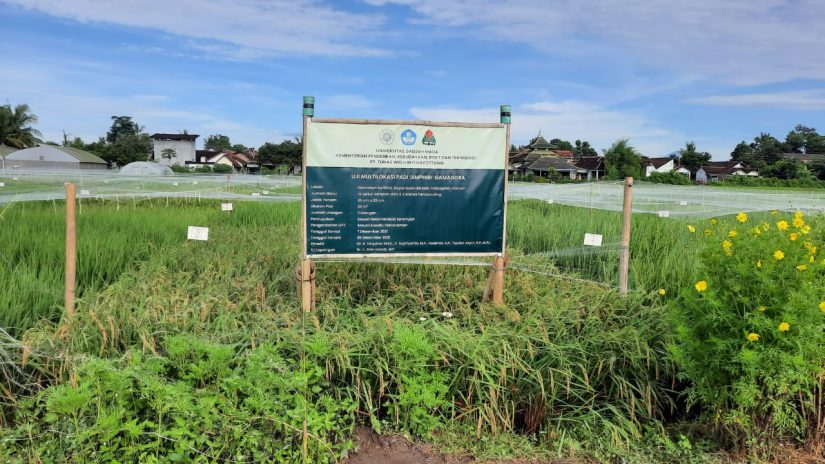
Researchers from Gadjah Mada University (UGM) have assembled rice varieties that are high-yielding and adapt to climate change. This rice variety is called “Amphibious” Gamagora rice. “The Gamagora Amphibious Rice is UGM’s innovation for Indonesia,” said UGM Chancellor, Prof. Ir. Panut Mulyono, M.Eng., D.Eng., IPU, ASEAN Eng at the UGM Agrotechnology Innovation Center (PIAT), Berbah, Sleman, Sunday, March 20, 2022.Gamagora rice seeds are called amphibians because they can be planted in a wetland with lots of water or dry land with little water, so they are very adaptive. While Gamagora stands for Gadjah Mada gogo rancah. Head of Researcher “Assembling of ‘Amphibian’ Rice Varieties with High Yield and Adaptive to Climate Change’, Dr. Ir. Taryono, M.Sc said, the assembly of this sustainable intensive rice cultivation technology package is in accordance with the Smart Eco-Bioproduction principle.
According to the Head of the Center for Agrotechnology Innovation (PIAT), UGM, rice cultivar is one of the leading technologies that can increase rice productivity and farmers’ income. Rice cultivars are also the easiest technology for farmers to adopt because this technology is cheap and its use is very practical. Assembling high-yielding and adaptive amphibious rice cultivars to climate change are one of the efforts to increase rice productivity, especially in sub-optimal land with relatively low productivity. “Sub-optimal land generally has agronomic, physiological problems, both physically land, water management, and pests and diseases. “Currently we are conducting a multi-location test on 10 promising rice lines of Gama gogo rancah (Gamagora) in 14 locations in 9 provinces, including Lampung, West Answer, Central Java, East Java, Special Region of Yogyakarta, Bali, West Nusa Tenggara, South Kalimantan, and North Halmahera,” said Taryono.
Gamagora ‘Amphibious’ rice will be an important innovation that can support the enrichment of scientific development, especially in the development of superior lowland rice cultivars. In addition, this research is in accordance with the values of UGM, which continue to be developed, especially in building pro-poor technology.
